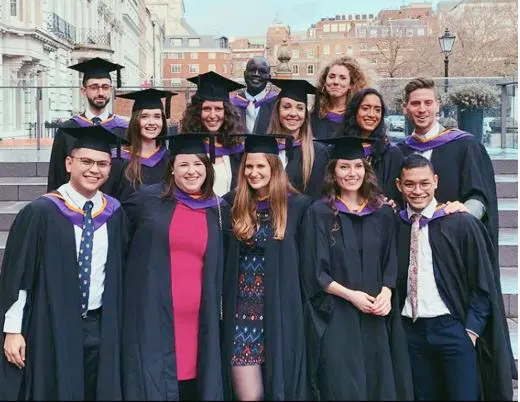In the 25 years of its existence, Uganda Christian University (UCU) has graduated many students, both Ugandan and foreign nationals in a multiplicity of disciplines. Recently, Kefa Senoga caught up with two UCU Bachelor of Mass Communication degrees graduates who are serving in humanitarian agencies in South Sudan. Kefa asked about the impact of their work and take-home value from UCU.
Acquiring a UCU Bachelor of Mass Communication degree 11 years ago was significant for Atem de Kuek, but the second most important thing within that credential were the lessons he learned during “foundation studies” courses. The foundation courses, such as Writing and Study Skills, Health and Wholeness, World Views and Christian Ethics, are mandatory course units for every undergraduate student at the university.

“I can testify that in my working experience, these courses have been handy for work integrity,” Kuek, who graduated in 2011 with a First Class degree, says. He works as a social and behavior change consultant for the UN Children’s Fund.
The academics who teach the foundation courses take pride in being the “roots and the stem” that support the other courses represented on the tree “leaves, branches and fruits.” The course Health and Wholeness, for example, teaches principles of health promotion and interventions for people who are sick or injured and finally, building a healthy society. The course is taught within the context of wholeness, in which “health” is not the absence of disease but a state of physical, emotional, social, and spiritual wellbeing. Deliberate strategies to maintain and promote health and to seek help with health problems are nonexistent or weak in other degree-granting universities.
Kuek added that UCU’s strict dress code is another takeaway for his work. Most students detested the policy forbidding short skirts, tight-fitting clothing, damaged jeans, shorts and tinted hairstyles, among others. However, Kuek says this earlier dislike better prepared him to easily blend into the world of professionalism.
As students, Kuek says they formed prayer clubs and research groups, to hold members accountable to each other. However, what started as groups to aid them to pass at the university became a mainstay in their lives and that they have kept in touch to date.

For Emmanuel Okot, a South Sudan national, the environment at UCU enabled him to improve academically, as well as to register growth in the social, emotional and spiritual aspects of life.
“And that’s how I developed the love to serve humanity,” says Okot, who graduated with a Bachelor of Mass Communication from UCU in 2018.
He emphasizes that UCU gave him training and skills that apply to his job with a humanitarian agency, the International Committee of the Red Cross (ICRC), in his home country.
“I take my entire life at UCU as a mentorship process, from my experience with everything and everyone – the lecturers, colleagues and the support staff,” he says.
ICRC has a humanitarian mission of protecting the lives and dignity of victims of armed conflict by providing them with assistance to prevent further suffering. As one of the information officers with the agency, Okot deals with crisis and reputation management, as well as leading efforts within the public communication team to connect with relevant audiences through digital content.
Among Kuek’s recent tasks were providing evidence on child marriages and on behavior change around ebola and COVID-19. He has over 10 years of experience in development and field research in South Sudan with UNICEF hosting his third position since he left UCU. Kuek, who holds a Master of Science in International Development and Humanitarian Emergencies from London School of Economics and Political Science, also previously worked with Plan International, Right to Play International and the Catholic Relief Services.


